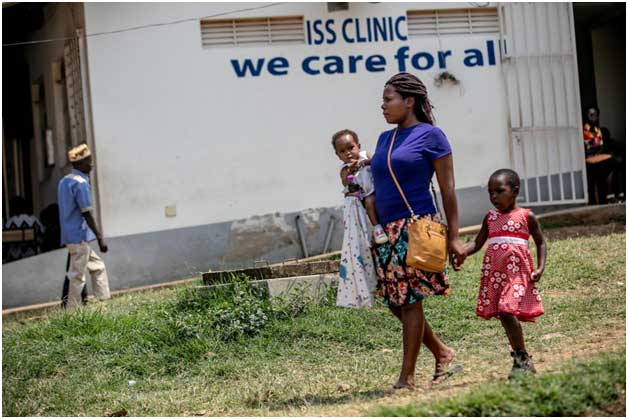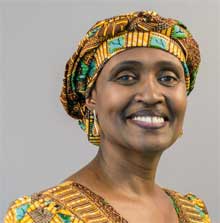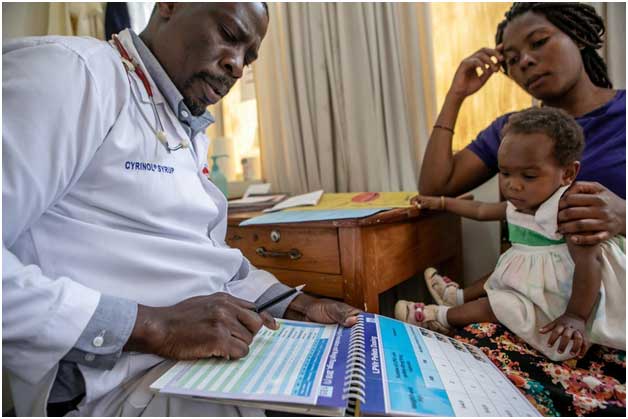Coronavirus Proves Need for Free Healthcare for All-- Now

GENEVA, Apr 02 (IPS) - The multi-layered crisis of the Coronavirus epidemic has been a dramatic shock to everyone. But, to communities affected by HIV and AIDS, the crisis has not only brought a further shock to already vulnerable people, it has brought other reactions too – a troubling sense of déjà vu, and a passionate, empathetic, fierce solidarity with all those affected by Coronavirus.
No two pandemics are the same. All require a specific, tailored, response. But we also have a duty, when dangerous, unjust and unsustainable structural weaknesses are exposed by one pandemic, left unresolved, and then jeopardize the fight against a second pandemic, to ensure that we don't wait for the third.
Everyone involved in the fight against AIDS is determined to do everything we can to support all those affected by the Coronavirus epidemic. We are by your side. We waited years for many of the breakthroughs we fought for, and we are still waiting for many others; we refuse to let leaders make you wait in this new crisis as they have made us wait. The time to fix the rips in our social fabric is now.
The HIV community has joined the emergency response in solidarity with those affected, and has joined too in insisting that leaders recognize that healthcare is a public good – that the health of each of us depends on the health of all of us.

Healthcare must be provided to all, free of charge, funded by public revenue. Quality health care is a human right, not a privilege, and should never depend on how much money you have in your pocket.
Governments must provide publicly funded health care for all people, through progressive tax systems in which everyone, including the super-rich and large corporations, pay their fair share. Public health systems must deliver services that reach people most in need.
As part of this, governments must support services which are community-led AND publicly-funded. Cutting-edge medicines and health care must be delivered affordably and to scale, to everyone no matter where they live.
User fees are false economy and a grave injustice – they are a tax on the sick that increases mortality and morbidity, and exacerbates poverty and inequities.
Decades of experience have shown that these charges deter people, especially low-income households, from using the health services they need, deepen poverty, and are highly inefficient and regressive ways to finance health care.
Their most obscene incarnation sees, in several countries, hospital wards turned into debtors' prisons of patients chained to their beds until their families sell assets or borrow from money-lenders to release their loved-ones.
Even in other, more "moderate", incarnations user fees see families bankrupted or left landless and powerless by the costs of care, and people left to die because they can't afford the fees. Three people every second are pushed into extreme poverty from paying for healthcare.
Charging for healthcare does not only hurt those directly affected – it puts all of us at risk. Covid-19 won't be stopped if some people can't afford testing or treatment.
As (former UN Secretary-General) Ban Ki-Moon noted in January, before this epidemic exploded: "Out-of-pocket health spending has been rising, meaning that more people are being impoverished because of health costs.
This not only undermines achieving universal health care, it is also a threat to global health security. High private health spending also inhibits progress towards other Sustainable Development Goals including eliminating poverty, reducing inequality and achieving gender equality."

After the horrors of World War II, several European countries and Japan introduced universal health care. After the financial and AIDS crises hit, Thailand did. All these universal health coverage (UHC) reforms delivered massive health and economic benefits to the people.
Now, in this crisis, leaders across the world have an opportunity to build the health systems that were always needed, and which now cannot be delayed any longer.
Countries don't have to be rich to provide free health care for all – as Sri Lanka has long shown. And the impact from removing fees is proven and profound. Jamaica saw improved access to health services among children and teenagers after it changed its policy on user fees in 2007, with the poorest people benefiting the most.
Sierra Leone showed that even in fragile settings, fee removals, properly planned and implemented, improve health systems and protect the vulnerable.
But globally the pace of progress is much too slow, and the impact of the Covid-19 pandemic is testimony that financial leaders have underestimated the economic risks of low investments in equitable health.
In addressing the current crisis, one major practical action that leaders can implement immediately is to launch truly universal, publicly-financed health care reforms to cover their entire population – not only for Covid-19 services but for all services.
This would cost around 1-2% GDP in the short-term, not enormous compared with some of the massive fiscal stimuluses already being planned.
The international community too has a profound moral obligation, and collective self-interest, in backing the expansion of universal healthcare by supporting moratoriums on debt repayments to free up resources of developing countries to invest in their healthcare systems.
As the UN Secretary-General has urged leaders to remember, "we are only as strong as the weakest health system in our interconnected world."
Bilateral donors and international financial institutions including the World Bank and IMF should also offer grants – not loans - to address the social and economic impacts of the pandemic on the poor and most vulnerable groups, including informal sector workers and marginalized populations.
Most low-income countries are already highly-indebted; it is immoral to push them to take more loans to fight an existential threat that the whole world is facing. A broad and equitable debt relief process is urgently needed not only to respond to the Covid-19 crisis but to shorten the recovery period and create conditions for growth.
Before Coronavirus hit, defenders of the unfair and unsustainable status quo in health claimed that the current patchwork, fragmented and wealth-based system worked just fine. But the damage of that system has now been exposed to everybody. Health for all is central to resolving this pandemic.
The best time to provide health for all has already passed. And the second-best time is now.
*Winnie Byanyima was appointed as the Executive Director of UNAIDS by the United Nations Secretary-General on 14 August 2019 assumed her functions as UNAIDS Executive Director on 1 November 2019. She was Executive Director of Oxfam International since 2013. Prior to that, she served for seven years as the Director of Gender and Development at the United Nations Development Programme.
© Inter Press Service (2020) — All Rights ReservedOriginal source: Inter Press Service
 Global Issues
Global Issues